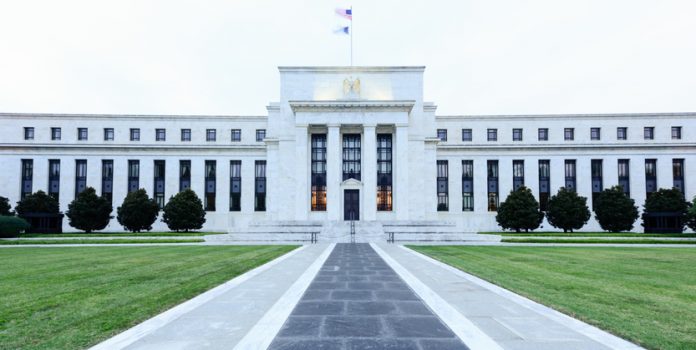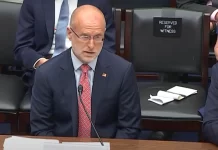The Fed’s false economic assumptions are pushing us into a recession, as it raises interest rates to counter inflation.
Based on its assumptions, the Federal Reserve is doing everything right by raising interest rates rapidly after years of easy money. It will certainly succeed in its goal of “cooling down” the economy.
Unfortunately, the Fed’s basic assumptions are wrong, and it has already begun reducing Americans’ standard of living, as indicated by this week’s Commerce Department report showing the nation’s gross domestic product fell for the second quarter in a row, meeting the common definition of a recession.
The Fed’s actions are based on two major ideas: one, the congressional directives to stabilize prices while maximizing employment, and two, the Fed’s ongoing ambition to fine-tune the economy, which flows from the first notion.
The Fed (and much conventional economic theory) assumes monetary inflation is a sign that the economy is “overheating,” and the way to slow inflation is to “cool the economy down” by raising interest rates. The increase in interest rates makes borrowing more expensive, which makes both production and consumer purchases costlier, among other things, so you get less of these. That is supposed to be good, somehow.
Low unemployment is likewise seen as a sign the economy is overheating. So, to beat inflation, you must increase unemployment. That is why Fed Chairman Jerome Powell said recently that the current low employment numbers indicate that slowing down the economy won’t do much harm to workers.
This notion was proven wrong during the stagflation of the 1970s when we had simultaneous high inflation and high unemployment. These days, the Fed is doing its nostalgic best to bring back stagflation. I’d rather have disco music back (and that’s saying a lot).
A major problem is that the factors on which the Fed bases its decisions are not only causes but also effects of Fed action. Inflation rises when the Fed pumps too much money into the system (in addition to other factors such as rapid rises in government spending, and I’m looking at you, pandemic-era federal spending spree), and unemployment rises when the Fed makes it more difficult/expensive to borrow money. The Fed then reacts to the problems it caused, often swinging wildly in the other direction. That is why we have moved rapidly from excessive money creation to overt suppression of economic activity, neither of which is a good idea.
Unemployment is, in fact, a lagging indicator: It rises when the Fed forcibly slows economic activity and decreases after the Fed stops doing that.
The Fed has it backward: Unemployment is not the important factor today; employment is. Low unemployment currently is not being caused by a thriving economy but by stagnation in the workforce as Baby Boomers leave and are not being replaced rapidly enough by new entrants. In fact, the employment rate is lower than it was before the pandemic.
The question we should be asking the Fed is this: Why would we ever want to slow down the economy? The Fed does this, ostensibly, to fulfill its directive to stabilize prices. Congress, not the Fed, established this requirement. But this is wrong. Why should prices be stable? If oil prices increase rapidly because of a supply shock, will a recession that cuts demand make people better off? Of course not.
Prices tell people how best to invest and spend, and they thus allocate resources to their most efficient uses. It is disturbing that in the name of stability, they turn a means into an end.
Forced price stability can help make the economy appear more orderly, but the only good reason to pursue it is to keep the government from manipulating the currency. Yet, price manipulation is the very thing the mandate calls for.
Central banks like the Fed continually create havoc in the economy. An alternative that has proven successful is to tie the nation’s currency to some relatively steady store of value, such as gold; preferably with a guarantee that the government will redeem the currency for the value-item upon request.
If this were the case, all the manipulation becomes unnecessary, not to mention illegal. Congress could do this, and it should. It might be nice to audit the Fed, but it would be much better to go to the heart of the problem and automate the dollar.
Originally published by American Greatness. Republished with permission. For more Budget & Tax News.










